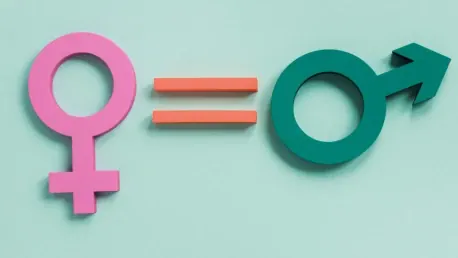The landscape of gender identity discrimination litigation took a significant turn recently when the U.S. Equal Employment Opportunity Commission (EEOC) moved to dismiss nearly all of its pending related lawsuits. This shift, influenced by recent political directives, was announced not long after Acting Chair Andrea Lucas expressed the EEOC’s intention to “roll back the Biden administration’s gender identity agenda.” These lawsuits had been filed under Title VII of the Civil Rights Act of 1964, which the 2020 Supreme Court ruling in Bostock v. Clayton County, Ga., confirmed to include protections against employment discrimination based on gender identity and sexual orientation. The cases highlighted issues such as deadnaming, misgendering, harassment, and retaliation, including wrongful termination.
Political Influence and Legal Framework
The Scope of the Lawsuits
The EEOC’s decision targets a broad array of industries, encompassing hotel and restaurant owners, as well as a hog farm. Each of these sectors faced allegations from transgender workers who reported a range of discriminatory behaviors. These included deadnaming, or referring to an individual by their pre-transition name, repetitive misgendering, and being “outed” without consent. Furthermore, many claimants argued that, after reporting such treatment, they faced retaliatory actions, including wrongful termination. These legal actions were rooted in Title VII of the Civil Rights Act, bolstered by the Supreme Court’s 2020 Bostock decision. This landmark ruling had expanded the interpretation of the Act to explicitly prohibit discrimination based on gender identity and sexual orientation.
President Donald Trump’s executive order on “gender ideology extremism” became a pivotal point for the EEOC’s recent motions to dismiss. The agency cited this executive order, along with guidance from the Office of Personnel Management (OPM), mandating that all federal employees align with the order’s directives. In this context, the EEOC argued that continuing ongoing litigations might clash with the executive order and OPM guidance. The EEOC’s strategy to halt these cases underscores the powerful influence of political leadership over federal employment policies, revealing an agency determined to prioritize alignment with current directives over the continuation of previously initiated litigation efforts.
Repercussions and Backlash
The EEOC’s decision has not gone unnoticed. Equal Rights Advocates, a legal group focused on workplace gender justice, voiced strong criticism against the agency’s actions. They accused the EEOC of neglecting its legal duties, stressing the importance of full enforcement of civil rights laws to protect transgender and gender non-conforming employees. This advocacy group underscores that the agency’s actions starkly contrast with legislative and judicial directives aimed at safeguarding rights against workplace discrimination.
This pullback marks a significant departure from the previous administration’s approach, putting into contention the consistency with which civil protections for transgender and gender non-conforming individuals are upheld. Such actions raise questions around the enduring impact of political changes on administrative priorities. Organizations, employees, and advocacy groups are urging for transparency and unwavering commitment to the fundamental tenets of civil rights, suggesting that political directives should not undermine established legal protections.
Broader Implications for Employment Discrimination Litigation
Shifting Regulatory Priorities
With the EEOC’s recent actions, a pattern of regulatory shifts driven by changes in political leadership has come to light. The withdrawal of gender identity discrimination cases reflects a broader reorientation of the agency’s priorities, with an apparent preference for conforming to the present political agenda. This trend introduces uncertainties regarding the stability and predictability of civil rights enforcement in the workplace. Employers and employees alike are left to speculate on the future landscape of employment discrimination litigation, especially as federal agencies may pivot with changing administrations.
These regulatory fluctuations pose significant challenges. For transgender and gender non-conforming employees, the risk of inconsistent enforcement of their rights becomes tangible. It raises concerns about the extent to which protections affirmed by the Supreme Court in Bostock will be upheld or diluted due to shifting political climates. Advocacy groups remain vigilant, emphasizing the need for enduring legal safeguards that transcend political swings, ensuring robust and reliable protection against discrimination.
Future Considerations and Advocacy
The EEOC’s decision affects various industries, including hotel and restaurant owners, as well as a hog farm, all facing allegations from transgender workers. These workers reported discriminatory behaviors such as deadnaming, misgendering, and being outed without consent. Additionally, many claimants experienced retaliation, including wrongful termination, after reporting these behaviors. These legal actions are grounded in Title VII of the Civil Rights Act, with added support from the Supreme Court’s 2020 Bostock decision, which explicitly bans discrimination based on gender identity and sexual orientation.
President Donald Trump’s executive order on “gender ideology extremism” significantly influenced the EEOC’s recent motions to dismiss. Citing this order and guidance from the Office of Personnel Management (OPM), the agency mandated that all federal employees adhere to these directives. The EEOC argued that continuing litigation might conflict with the executive order and OPM guidance. This move illustrates the substantial impact of political leadership on federal employment policies, showing the EEOC’s commitment to aligning with current directives over pursuing ongoing legal battles.









